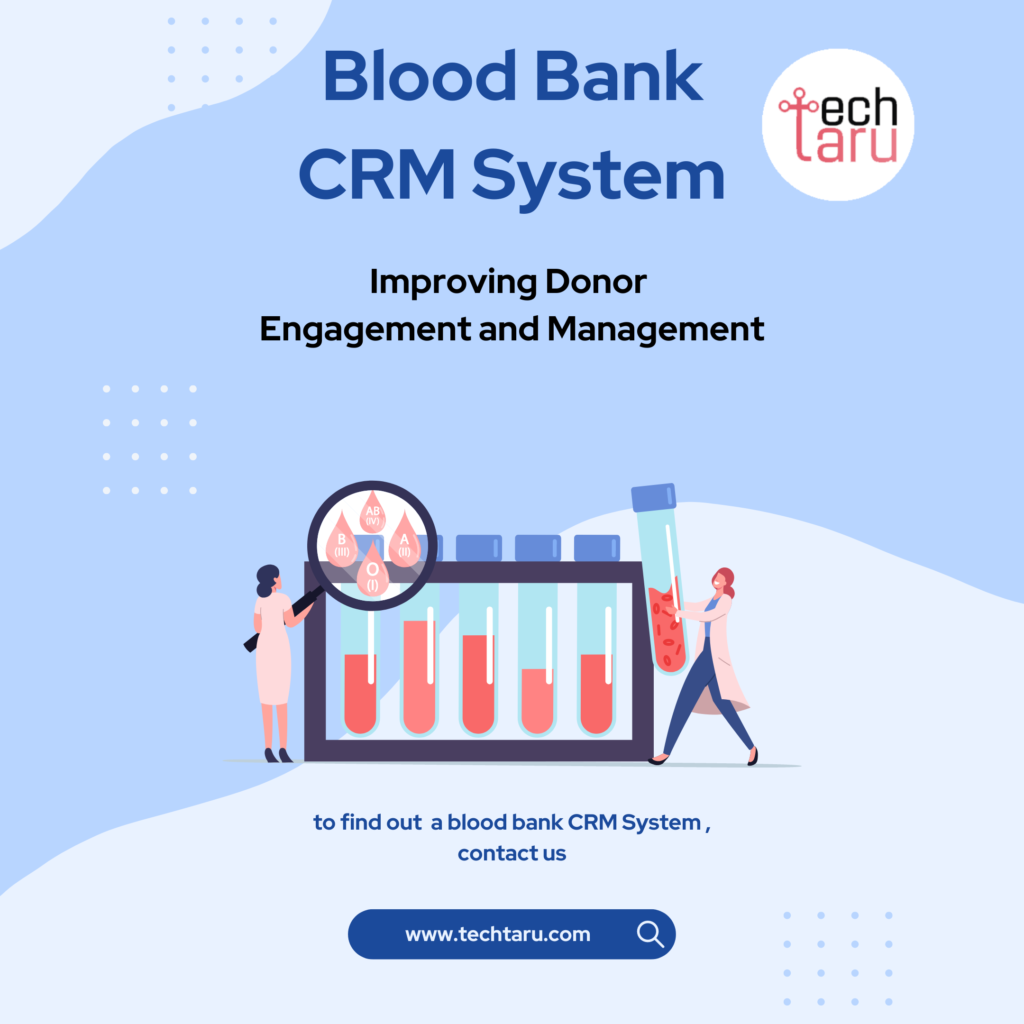
Blood Bank CRM in 2023: Improving Donor Engagement and Management
As the world continues to face a shortage of blood supply, it has become increasingly important to manage donor relationships effectively. This is where Blood Bank Customer Relationship Management (CRM) software comes in. Blood Bank CRM systems offer a powerful way to improve donor engagement and management. In this article, we will explore what Blood Bank CRM is, why it is important, and how it can help blood banks better manage their donors.
What is Blood Bank CRM?
Blood Bank CRM is a software system designed to help blood banks manage donor relationships. It is a tool that enables blood banks to track and manage donor information, including contact details, donation history, and preferences. The system also allows blood banks to schedule appointments, send reminders, and automate follow-up communication with donors.
The Importance of Blood Bank CRM
Blood Bank CRM is important for several reasons. Firstly, it helps blood banks manage their donor relationships effectively. By maintaining accurate and up-to-date donor information, blood banks can communicate more efficiently with their donors and provide them with a better donor experience. This can lead to increased donor loyalty and repeat donations.
Secondly, Blood Bank CRM can help blood banks manage their blood supply more effectively. By tracking donor information and donation history, blood banks can identify patterns and trends in donor behavior. This can help them predict future donation patterns and ensure that they have sufficient blood supply to meet demand.
How Blood Bank CRM Can Help
Blood Bank CRM offers several benefits to blood banks. These include:
1. Better Donor Engagement
Blood Bank CRM helps blood banks engage with their donors more effectively. By maintaining accurate and up-to-date donor information, blood banks can communicate with their donors in a more targeted and personalized way. This can help build stronger relationships with donors and increase donor loyalty.
2. Improved Donor Retention
Blood Bank CRM can help blood banks improve donor retention rates. By tracking donor behavior and preferences, blood banks can identify opportunities to improve the donor experience. This can help increase donor satisfaction and encourage repeat donations.
3. Increased Efficiency
Blood Bank CRM can also help blood banks operate more efficiently. By automating certain processes, such as appointment scheduling and follow-up communication, blood banks can save time and resources. This can help blood banks focus on other important areas of their operations, such as donor recruitment and blood supply management.
4. Enhanced Blood Supply Management
Blood Bank CRM can help blood banks manage their blood supply more effectively. By tracking donor behavior and donation patterns, blood banks can identify opportunities to increase blood supply. This can help ensure that blood banks have sufficient supply to meet demand, particularly during emergencies or disasters.
Choosing a Blood Bank CRM System
When choosing a Blood Bank CRM system, it is important to consider several factors. These include:
1. Features
Different Blood Bank CRM systems offer different features. It is important to choose a system that meets your blood bank’s specific needs and requirements. Some key features to look for include donor management, appointment scheduling, follow-up communication, and reporting and analytics.
2. User-Friendliness
Blood Bank CRM should be easy to use and navigate. The system should be intuitive and user-friendly, with a simple interface that makes it easy to access and manage donor information.
3. Integration
Blood Bank CRM should integrate seamlessly with your blood bank’s existing systems and processes. This can help ensure that all donor information is accurate and up-to-date, and that blood bank staff can access the information they need quickly and easily.
Conclusion
Blood Bank CRM is a powerful tool for managing donor relationships and improving blood supply management. By maintaining accurate and up-to-date donor information, blood banks can engage with their donors more effectively and provide them
with a better donor experience. Blood Bank CRM can also help blood banks manage their blood supply more effectively, by identifying patterns and trends in donor behavior and predicting future donation patterns. This can help blood banks ensure that they have sufficient blood supply to meet demand.
When choosing a Blood Bank CRM system, it is important to consider the specific needs and requirements of your blood bank. Look for a system that offers key features such as donor management, appointment scheduling, follow-up communication, and reporting and analytics. The system should also be user-friendly and integrate seamlessly with your existing processes and systems.
In conclusion, Blood Bank CRM is a valuable tool for blood banks looking to improve donor engagement and management, as well as blood supply management. By maintaining accurate and up-to-date donor information, blood banks can communicate with their donors more effectively and provide them with a better donor experience. Blood Bank CRM can also help blood banks manage their blood supply more effectively, ensuring that they have sufficient supply to meet demand. When choosing a Blood Bank CRM system, it is important to consider the specific needs and requirements of your blood bank, and choose a system that offers key features and is user-friendly and easy to integrate.
follow us on facebook

